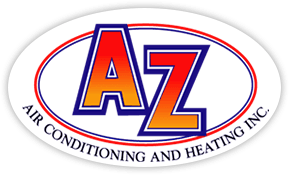Purchasing your first home is an exhilarating experience. You’re likely juggling a dozen things or more about making the right choice. We believe that gaining insight into your future HVAC system is vital. The property’s HVAC system represents a substantial investment and source of potential long-term costs, which is why due diligence is important for first-time homebuyers.
In the following guide, we’ll outline seven tips for discovering all there is to know about a home’s heating and cooling setup. And if you want a more in-depth opinion from the pros, consider calling AZ Air Conditioning and Heating. Our experienced team can weigh in on your options with industry insights you won’t find elsewhere.
1. Which Kind of HVAC System Does the Home Use?
Start by determining what kind of HVAC system the home has. Furnaces generally last longer compared to air conditioners, and relatively new types of HVAC systems like heat pumps feature average life spans that are impressively long. Getting the details on the make and specific model ensures you have a much better sense of how much maintenance it will require.
2. What Is the Current System’s Age?
It also helps to learn how old the HVAC system is when you’re considering a new home. In general, HVAC systems last about 10-12 years. Having the knowledge of when it was installed helps you plan for possible repair needs or considerations if it might eventually stop working. Older systems are more prone to problems, so planning ahead of time for a replacement unit might be needed faster than expected.
3. Is the Warranty Active?
Check if the HVAC system is covered by a warranty. If it is, this can assist with maintenance expenses. HVAC warranties often cover parts and labor, but it’s important to note that details will vary. Review any terms that seem confusing to ensure you understand your coverage and any possible out-of-pocket costs.
4. Does the System Have a Documented Maintenance History?
Next, examine the maintenance history of the HVAC system, if that information is available. This service history can reveal if the system constantly broke down or how much upkeep was provided. Ask about records for key tasks such as changing the air filter, which means it enjoyed more regularly scheduled tune-ups.
5. What Are the Energy Efficiency Ratings?
Purchasing a home with a heating and cooling system with great energy efficiency isn’t just smart; it leads to more manageable utility bills and a smaller environmental impact. Try and find the seasonal energy efficiency ratio (SEER) ratings for air conditioning as well as the annual fuel utilization efficiency (AFUE) for furnaces. The higher the SEER rating, the more efficient the cooling over the whole season, while strong AFUE ratings indicate that the fuel is efficiently converted into useable heat.
6. Have You Noticed Signs of Problems After Completing an Informal Inspection?
Even if you don’t have the know-how of an HVAC technician, it’s still a good idea to check out the HVAC system yourself. Keep an eye out for any concerning items that might have been overlooked. This might consist of odd sounds, spots with uneven heating or cooling and attempts to cover up any obvious damage.
7. Have You Sought Out Expert Advice?
If you’re unsure about the overall state of the HVAC system, it’s never a bad idea to get input from certified HVAC technicians. They can spot things you may not know about, such as leaking coolant, damage to the wiring or flawed ductwork.
A Call with AZ Air Conditioning and Heating Simplifies Your Home-Buying Journey
Choosing your first home ought to be exciting, and AZ Air Conditioning and Heating can ensure that doesn’t change. Connect with us at (877) 559-6081. We can discuss how our HVAC services give you peace of mind, giving you what you need to make an offer with confidence.
